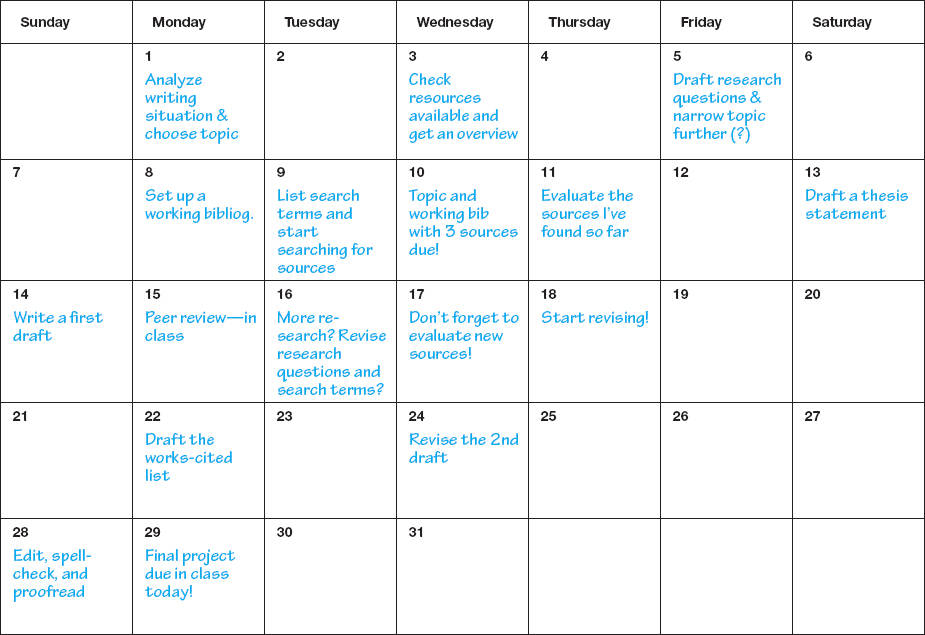Analyzing Your Rhetorical Situation and Setting a Schedule
Making your research project manageable begins with defining the scope and goals of your research project. Begin by analyzing your rhetorical situation:
- What is your purpose? Is it to explain a concept, report on or argue for a position, or analyze the causes of an event or a behavior?
- Who is your audiences and what will their interests, attitudes, and expectations for the project be? How many and what kinds of resources does your audience expect you to consult? (For college research projects, your audience will likely be your instructor.)
-
What genre is the research project, and how will that affect the kinds of sources you use? An observational report in the social sciences may demand mainly primary research, whereas an argument essay for a history course may require a variety of secondary and primary sources.
To learn more about primary and secondary research, see Chapter 24.
Also be sure you consider the following practical issues before you begin your research project:
- How long should the research project be?
- When is it due?
- Are any interim assignments required (such as an outline or an annotated bibliography)?
If you’re not sure of the answers to these questions, ask your instructor to clarify the assignment or define any confusing terms so that you can work most efficiently.
Finally, set a schedule. Be sure to take into consideration the projects you have due for other classes as well as other responsibilities (to work or family, for example) or activities. A sample schedule is shown in Figure 23.2.
Some library Web sites may offer an online scheduler to help you with this process. Look for a link on your library’s Web site, or try out an assignment calculator, such as the one found at the University of Minnesota library’s Web site, www.lib.umn.edu/help/calculator/.
